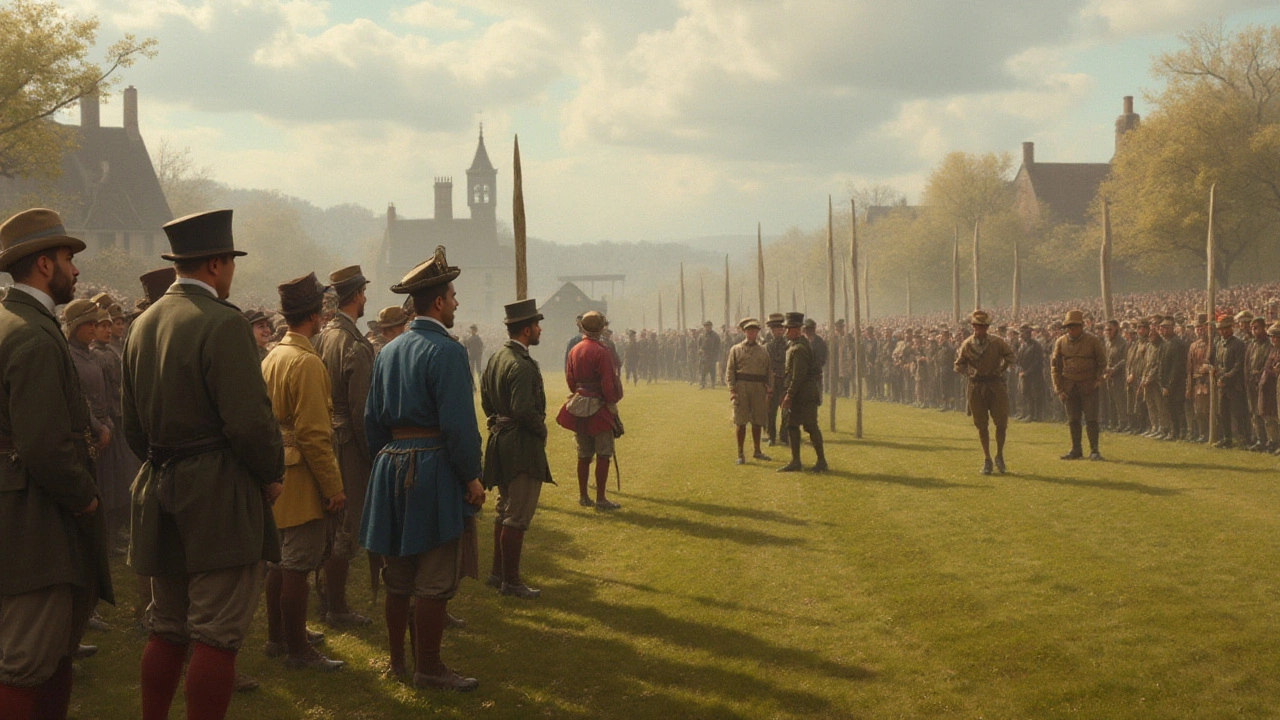Match Origins: How Today’s Sports Matches Came to Be
Ever wonder why a football match starts with a kickoff or why boxers count to three before a bout? The answer lies in centuries‑old traditions, local customs, and a few accidental rule‑writes. Let’s break down the real origins of the matches we watch on TV, at the pub, or on the pitch.
From Village Fields to Global Arenas
Most modern matches grew out of simple village contests. In medieval England, teams of peasants would gather for a chaotic kickabout with a pigskin. No standardized size, no set duration – just a lot of shouting and a ball that rolled wherever it wanted. By the 19th century, the newly formed Football Association (FA) decided to lock down the rules, giving us the 90‑minute match we know today. The same pattern repeats for other sports: local games get formalised, rules get written, and the match as a spectacle is born.
Why Boxing Calls It a Bout
Boxing’s “match” is technically called a bout, a word borrowed from French "bouter," meaning to push. Early prizefights in 1700s England were more street brawls than organized events. When the Marquess of Queensberry Rules appeared in 1867, they introduced timed rounds, gloves, and the three‑minute count. Those changes turned a free‑for‑all into a structured match where each round is a mini‑battle, and the whole thing ends with a clear winner.
Rugby’s story mirrors football’s but adds a scrum of its own. The sport split from soccer in 1865 at Rugby School when a player supposedly picked up the ball and ran. The “match” became a test of both strategy and raw power, leading to the five‑rule basics we teach beginners today. Meanwhile, basketball’s match origins trace back to 1891 when James Naismith nailed a peach basket onto a gym wall. He set nine simple rules, and the first “match” was a handful of students trying to get a ball into a hoop – a far cry from today’s high‑tech arenas.
Even niche sports have quirky origins. The British Basketball League (BBL) started as regional leagues in the 1970s, each hosting its own match day. When the national pyramid was built, matches became part of a promotion‑relegation system, giving local clubs a shot at the big leagues.
What ties all these stories together? A need for fairness, excitement, and a way to settle rivalries without spilling blood. Rules turned chaos into competition, and the match became the central unit of that competition. Today, whether it’s a 7‑minute squash match or a 90‑minute football game, the format we enjoy is the product of centuries of tweaking, testing, and sometimes pure luck.
So next time you hear the referee’s whistle or the announcer say, “And the match is underway,” you’ll know you’re part of a tradition that started on muddy fields, in cramped gyms, and on makeshift courts. It’s more than just a game – it’s history in motion.
Understanding Why a Football Game is Called a Match

When it comes to football, understanding why the game is referred to as a 'match' can be intriguing. The term stems from various historical and cultural influences within the sport. This article delves into the roots of the word 'match,' exploring its journey through football's global reach. Discover the nuances that differentiate a match from other sporting references and learn more about its significance in today's sports world.
